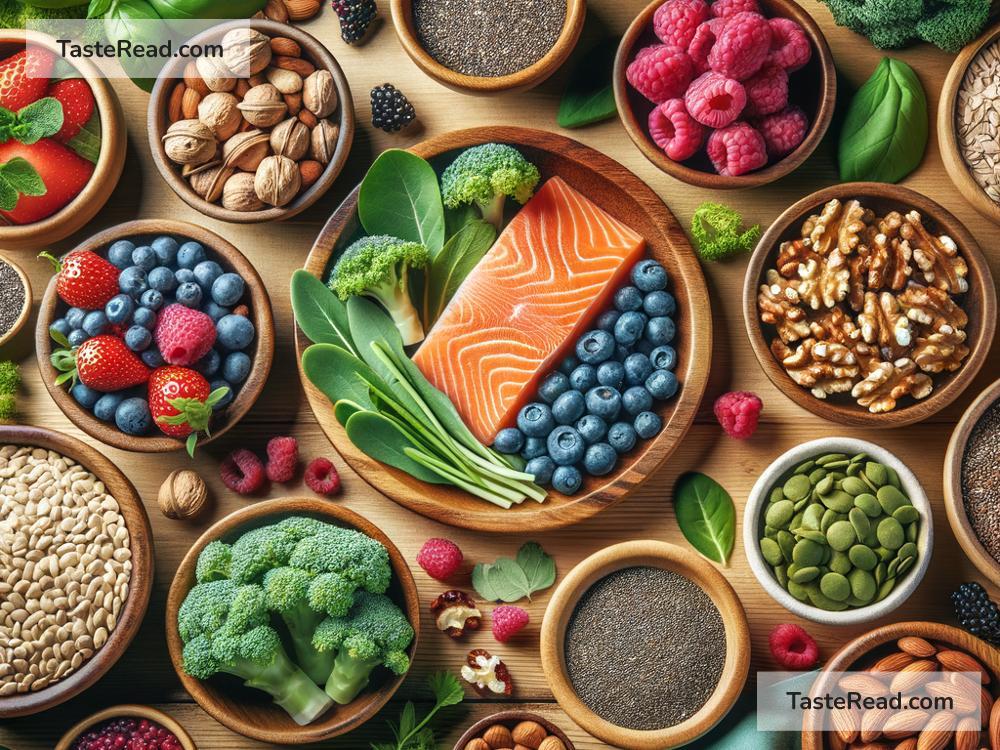Foods for Improving Cycle Regularity: Simple Diet Tips for Better Health
Many women experience irregular menstrual cycles at some point in their lives. Irregular periods can be caused by various factors, such as stress, hormonal imbalances, weight changes, or underlying health conditions like polycystic ovary syndrome (PCOS). While medical advice is essential for managing these issues, your diet also plays a key role in supporting a healthy cycle. In this blog, we’ll explore simple foods that can help promote cycle regularity and overall hormonal balance.
Why Does Food Matter for Your Cycle?
Your menstrual cycle is controlled by hormones, especially estrogen and progesterone. These hormones are affected by different factors including your nutrition. Eating certain foods can help your body maintain a healthy hormonal balance, reduce inflammation, and keep your menstrual cycle on track. Incorporating these foods into your diet can be a natural way to support your reproductive health.
1. Whole Grains
Whole grains like oats, quinoa, brown rice, and whole wheat are packed with fiber and nutrients that promote hormonal balance. Fiber helps regulate blood sugar levels, which is important because unstable blood sugar can disrupt the production of hormones like insulin. High insulin levels can interfere with menstrual cycle hormones, making periods irregular.
Whole grains are also great for energy and managing cravings during your cycle. Start your day with a bowl of oatmeal or choose brown rice with meals to provide your body with steady energy and support your cycle.
2. Leafy Greens
Leafy greens such as spinach, kale, and Swiss chard are rich in vitamins and minerals like iron, magnesium, and calcium. Iron is especially important to replenish lost nutrients during menstruation. Many women with irregular cycles have low iron levels, which can affect their overall health.
Magnesium in greens helps reduce cramps and support muscle relaxation. It’s also known to play a role in hormone regulation. Aim to include a serving of leafy greens in your meals every day – maybe a spinach salad or sautéed kale with garlic.
3. Fruits High in Antioxidants
Fruits rich in antioxidants, like berries (blueberries, strawberries, raspberries) and citrus fruits (oranges, lemons), can reduce inflammation and oxidative stress in your body. Both inflammation and oxidative stress can interfere with your hormonal functions and cause irregular cycles.
Additionally, fruits like papaya may help stimulate regular periods because papaya contains an enzyme called papain, which supports smooth menstrual flow. Snack on fresh fruits or add them to smoothies for a healthy, hormone-friendly treat.
4. Healthy Fats
Not all fats are bad! Healthy fats, such as those found in avocados, nuts, seeds, and olive oil, are essential for producing hormones. Omega-3 fatty acids, found in foods like walnuts, chia seeds, and fatty fish (salmon, mackerel), are especially helpful. They reduce inflammation in the body and support brain and hormone health.
Try adding a few slices of avocado to your lunch, sprinkle chia seeds into your yogurt, or cook with olive oil instead of butter. These small steps can make a big difference in improving cycle regularity.
5. Foods High in Vitamin D
Vitamin D plays a significant role in regulating hormones and menstrual cycles. A deficiency in Vitamin D can throw off your cycle, leading to missed or irregular periods. Foods rich in Vitamin D include eggs, fortified milk, and fatty fish like salmon.
In addition to your diet, spending time in the sunlight can also increase your Vitamin D levels. If you’re unable to get enough Vitamin D from food and sunlight, talk to your doctor about supplements.
6. Herbs and Spices
Some natural herbs and spices are known for their menstruation-supportive properties. Turmeric, ginger, and cinnamon are widely used in traditional medicine for balancing hormones and improving blood flow.
Turmeric contains curcumin, which reduces inflammation and supports a healthy cycle. Ginger can ease menstrual cramps and promote regular periods. Cinnamon helps stabilize blood sugar and improve symptoms of PCOS. Add these spices to tea, smoothies, or meals to enhance their benefits.
7. Protein-Rich Foods
Proteins are vital for sustaining hormonal health. Choose lean protein sources like beans, lentils, eggs, chicken, and tofu. These foods provide amino acids necessary for hormone production and help maintain stable energy levels.
Additionally, proteins can keep you feeling full, reducing cravings for sugary snacks that can lead to insulin spikes. Adding a mix of plant-based and animal protein to your meals is a great way to support your body during your cycle.
8. Hydration and Cycle Health
While not a food, water is essential for keeping your cycle regular. Staying hydrated helps your body flush out toxins and regulate hormones effectively. Herbal teas like peppermint or chamomile can also be soothing during your cycle, and some teas may help ease bloating or cramps.
Aim for at least 8 cups of water per day, and adjust based on activity levels or climate. Proper hydration supports circulation and overall health, which is important for a regular menstrual cycle.
Foods to Limit
To improve cycle regularity, you should also limit certain foods:
- Processed foods: These often contain added sugars and unhealthy fats that can disrupt hormone levels.
- Caffeine: Excessive caffeine can interfere with hormonal balance and increase stress, affecting your cycle.
- Alcohol: Drinking too much alcohol can harm your liver and disrupt hormone processing.
Conclusion
Improving your menstrual cycle’s regularity starts with taking care of your health, and your diet is an essential part of that. Focus on eating nutrient-dense foods like whole grains, fruits, healthy fats, and leafy greens while staying well-hydrated. Avoid heavily processed foods and find ways to incorporate hormone-friendly spices like turmeric or cinnamon into your meals.
Remember, while diet can help support a regular cycle, it’s also important to listen to your body and seek medical advice if needed. Making small, consistent changes to your eating habits can have a big impact on your hormonal health, helping you feel more balanced and in control of your body.
So, start with these simple foods, and take a step toward a healthier you!


